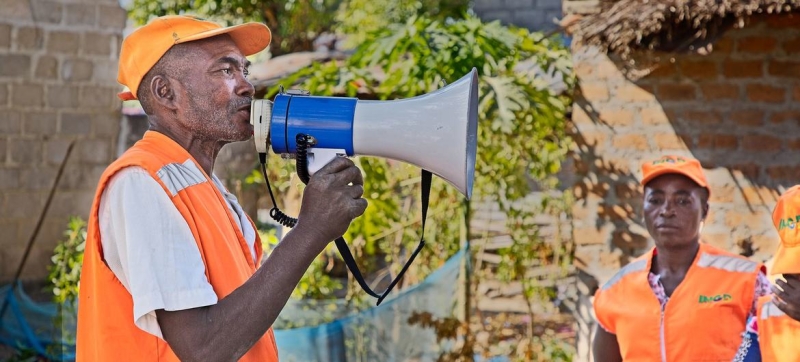
Approximately 90 percent of deaths due to natural disasters occur in developing countries. UN chief at WMO forum: science and early warning key to saving lives Climate and Environment
No country is immune to the devastating effects of extreme weather events. This was announced on Wednesday by UN Secretary-General Antonio Guterres, calling for early warning systems to be accessible to all.
“Early warning systems work,” he emphasized, speaking in Geneva at the World Meteorological Organization (WMO) forum. “They give farmers the ability to protect crops and livestock, allow families to evacuate safely, and protect entire communities from destruction.”
According to the UN Secretary General, the mortality rate from natural disasters is at least six times lower in countries with effective early warning systems. He added that 24-hour warning of an impending danger could reduce damage by 30 percent.
In 2022, the UN Secretary-General launched the Early Warning for All initiative, which aims to ensure that every person on the planet is protected through warning systems by 2027 year.
According to WMO, more than half of the world’s countries are already equipped with multi-purpose early warning systems. Least developed countries have nearly doubled their capacity in this area since official reporting began, but, as Guterres noted, “there is still a long way to go.”
At a special session of the World Meteorological Congress earlier this week, countries supported the Secretary-General’s urgent call to action to address remaining monitoring gaps.
Increasing impacts of extreme weather
WMO chief Celeste Saulo, who has championed widespread implementation of early warning systems, warned that the impacts of climate change are worsening: “Extreme weather events destroy lives and livelihoods, undermining advances in development.”
She noted that today there is a real opportunity to use climate analytics and technological advances “to build a more sustainable future for all.”
Weather, water and climate hazards have claimed lives over the past five decades, according to the WMO. more than two million people, with 90 percent of deaths occurring in developing countries.
Funding and climate commitments
António Guterres stressed that a significant increase in funding is required for countries to act “with the speed and scale required.”
“To reach every community, a dramatic increase is needed volumes of financing,” he said. “Too many developing countries face tight fiscal space, slowing investment growth, unsustainable debt loads and systemic risks.” pre-industrial period – despite the fact that, according to him, this threshold will inevitably be exceeded in the coming years.
“It is already clear that we will not be able to keep warming below 1.5 degrees in the coming years,” Guterres warned. – Excess is inevitable. This means that we will face a period – more or less long and intense – with temperatures above 1.5 degrees.” measures.
Ahead of the UN Climate Conference
At the next UN Climate Change Conference, which will be held from November 10 to 21 in Brazil, where states must commit to reducing greenhouse gas emissions gases for the next decade, “we need to be much more ambitious,” Guterres said. UN.
Guterres called on developed countries to deliver on their pledge to double climate change adaptation funding to $40 billion this year and to make substantial contributions to the Loss and Damage Fund.
To conclude his speech The Secretary-General expressed solidarity with the scientific community and emphasized that the “ideas, knowledge and influence” of WMO, which celebrates its 75th anniversary this year, “are needed today more than ever.”
